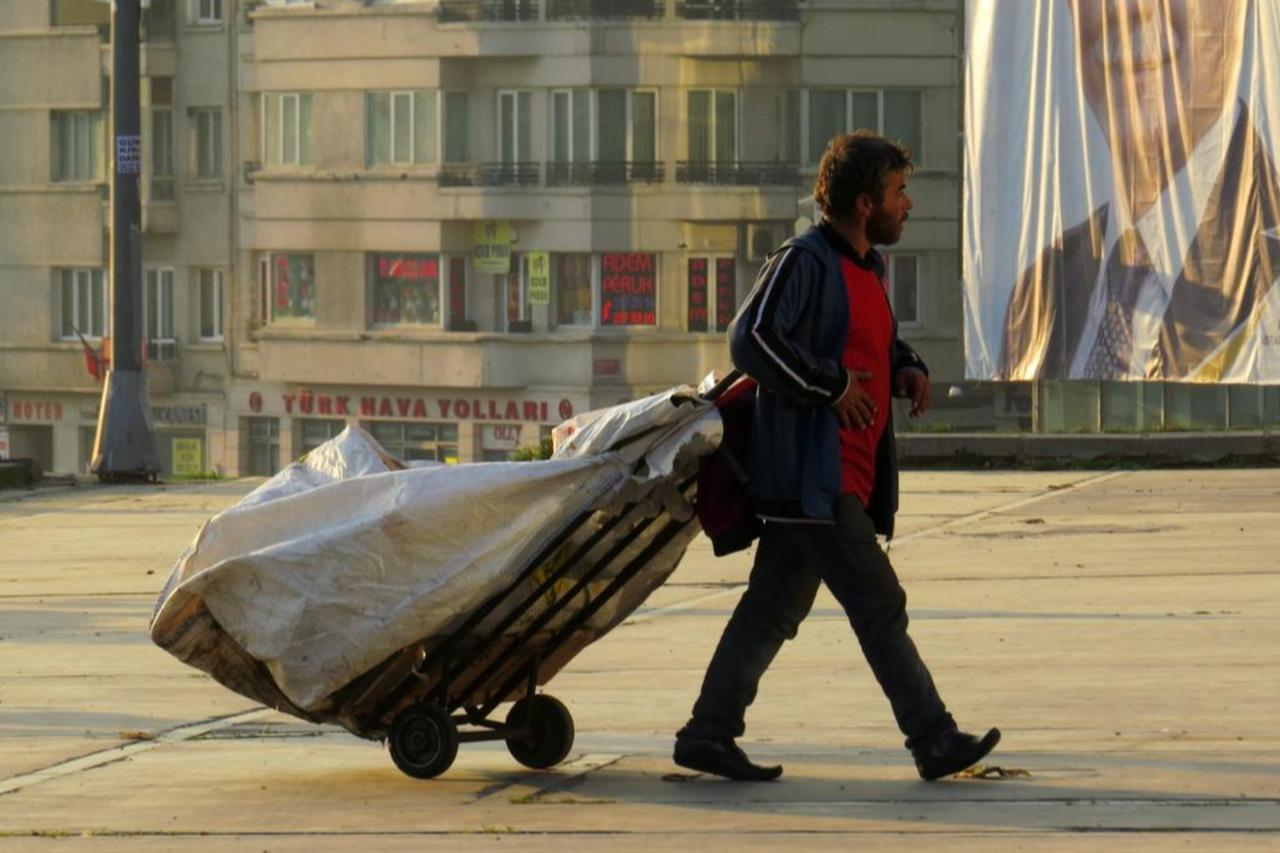
The Türkiye Waste Prevention Foundation (TISVA) released its “2025 Waste Report,” presenting a wide-ranging account of inefficiencies in spending, resource use, and consumption patterns both globally and in Türkiye.
The report underscores how waste intersects with environmental, fiscal, and social challenges. Its findings place Türkiye’s experience in a global context, encompassing electronic and textile waste, military budgets, and food insecurity.
The world generated 62 million tons of electronic waste in 2024, with only 17% recycled.
Türkiye’s rate was just 5%, underscoring weak recycling infrastructure and limited consumer awareness.
The environmental burden of electronics is considerable. Producing a single smartphone releases about 55 kilograms (121.2 pounds) of carbon dioxide.
Legal scrutiny has also targeted producers: Apple agreed to pay a $500 million settlement after slowing down older iPhones, a case that highlighted both corporate practices and consumer vulnerability.
The global fashion sector accounts for 10% of carbon emissions and 20% of water consumption. Its reliance on fast cycles exacerbates waste, with Zara and H&M producing over 20 collections annually.
Worldwide, 92 million tons of textiles are discarded every year.
Analysts point to circular economy models as a possible way forward. The Ellen MacArthur Foundation estimates that a shift to circular practices could yield $4.5 trillion in benefits by 2030.
For Türkiye, where textile production remains central to exports, the debate has both economic and environmental dimensions.
Türkiye’s muhtar system, a cornerstone of neighborhood and village-level administration, now includes over 50,000 elected officials.
While symbolically important for citizen access to government, the financial cost is rising.
Each muhtar costs the state budget about ₺70,000 monthly, adding up to ₺43 billion per year. Over five years, the system has surpassed ₺212 billion.
Critics argue that while muhtars provide community-level services, the sustainability of the financial burden requires reassessment.

Military spending worldwide hit a record $2.7 trillion in 2024. The United States led with $997 billion, followed by China at $314 billion and Russia at $149 billion.
The nation's expenditure reached $25 billion, moving it to 17th place globally.
Global per capita military spending rose to $334, the highest since 1990. Observers note that such sums rival what would be required to eliminate global poverty by 2030—an uncomfortable comparison as humanitarian crises deepen.
Türkiye continues to lose roughly 15% of its national income to waste, according to estimates.
The Social Security Institution received ₺1.4 trillion in budget transfers in 2024, while debt interest payments reached ₺960 billion. Both items illustrate structural fiscal strains that limit resources for long-term investment.
Water availability per capita in Türkiye could fall to 1,116 cubic meters by 2040, placing the country on the threshold of water scarcity. By 2050, projections suggest Türkiye could join the ranks of water-stressed nations.
The World Meteorological Organization reported that floods and droughts in 2024 caused the highest displacement numbers seen in 16 years. The risks are not abstract—climate shocks are already affecting food security, migration and public health.
Globally, 1.5 billion tons of food are wasted each year. In Türkiye, the figure is 8.7 million tons—about 102 kilograms per person. Households account for 60% of this loss.
At the same time, hunger persists: 25,000 children die every day from hunger-related causes, and 343 million people experienced acute food insecurity in 2024. The gap between waste and need remains one of the most pressing contradictions in global governance.
Paper consumption continues to place pressure on forests, with 4 billion trees cut down annually for production. Waste accounts for the loss of an additional 640 million trees.
In Türkiye, annual consumption stands at 7 million tons, or 70 kilograms per person. The recycling rate is around 40%, a figure that suggests progress but also reveals significant room for improvement.
Plastic pollution remains entrenched. Fourteen million tons of plastic enter the oceans every year, adding to the estimated 5.25 trillion plastic fragments already present.
Recycling one ton of plastic can save the equivalent of 16.3 barrels of oil. Despite the clear economic case, global recycling rates remain low, allowing pollution to accumulate.
Türkiye’s waste and spending patterns mirror wider global challenges: inefficient recycling systems, unsustainable consumption, rising public costs, and the tension between military expenditures and social needs.
For policymakers, the data reflects both vulnerabilities and opportunities, situating Türkiye’s domestic debates within a broader international conversation on sustainability and governance.